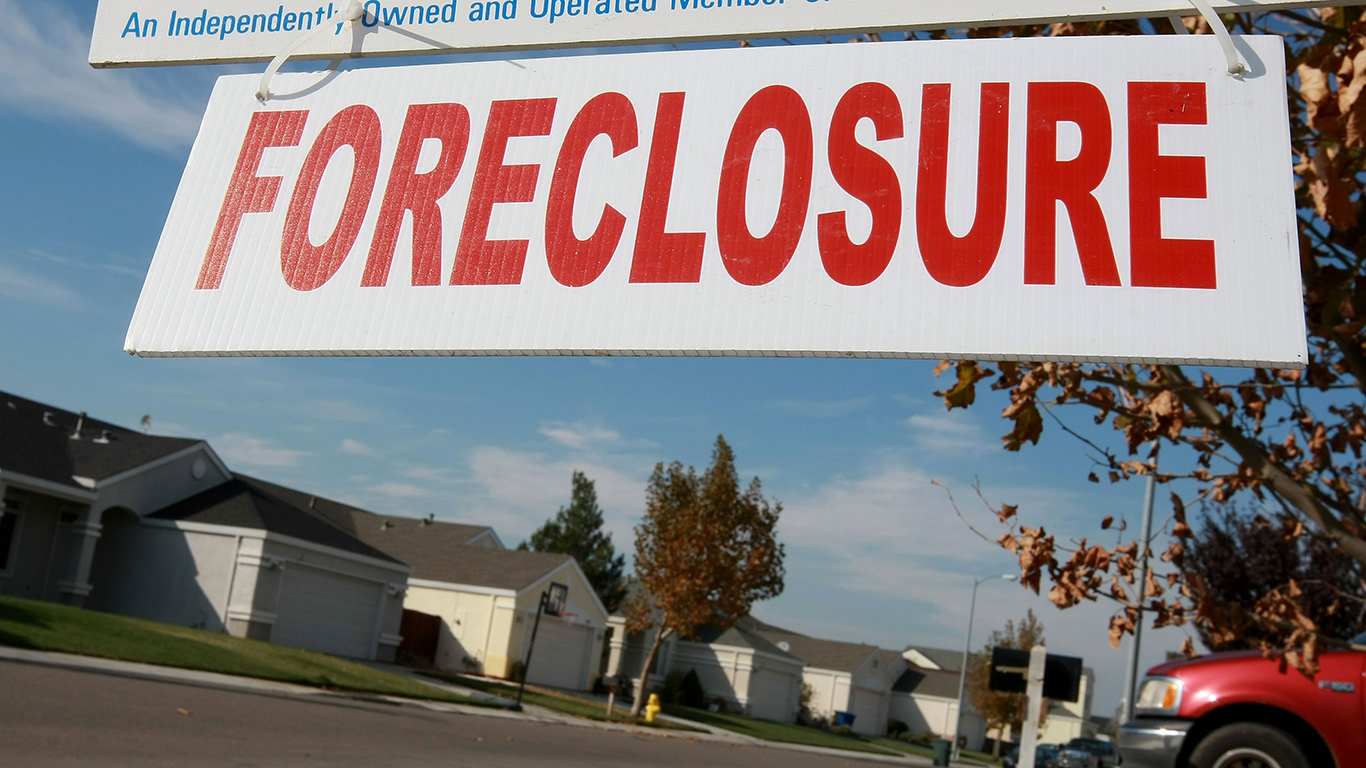
The housing market has been unusually hot in the past year. Home prices have risen in double digits in many cities and states. In some cases, the increases are over 25%. Among the contributing factors are low mortgage rates. These make houses more affordable, particularly for people who want to stretch their budgets. Another is the extent to which people have relocated from expensive cities on the coasts to smaller cities with lower housing prices and a perceived better quality of life. Additionally, this relocation trend has been boosted by the ability to work from home, triggered by the COVID-19 pandemic. None of these factors has prevented the fact that some Americans cannot afford their mortgages and sit on the edge of foreclosure.
[in-text-ad]
The CoreLogic Loan Performance Insights report was released recently. The latest version covers mortgage activity through June and states:
The report is published monthly with coverage at the national, state and Core Based Statistical Area (CBSA)/Metro level and includes transition rates between states of delinquency and separate breakouts for 120+ day delinquency.
One factor has helped people with troubled loans stay in their homes longer than usual. This is the federal foreclosure moratorium. CoreLogic found that many people do not understand the provisions of these laws.
Loans in the most trouble are deemed by CoreLogic as having a “serious delinquency rate – defined as 90 days or more past due, including loans in foreclosure.”
Based on this measure, the state with the highest percentage of seriously delinquent mortgages is New York at 5.1%. It is followed by two southern states: Louisiana (5.0%) and Mississippi (4.4%).
How long can people with troubled mortgages stay in their homes? U.S. Department of Housing and Urban Development recently stated about foreclosure evictions:
The Federal Housing Administration (FHA) on July 30, 2021, announced an extension of its moratorium on evictions for foreclosed borrowers and their occupants through September 30, 2021, and noted the expiration of the foreclosure moratorium on July 31, 2021.
This only applies to people with federally backed loans.
Click here to see in which state people are most likely to lose their homes.
Are You Still Paying With a Debit Card?
The average American spends $17,274 on debit cards a year, and it’s a HUGE mistake. First, debit cards don’t have the same fraud protections as credit cards. Once your money is gone, it’s gone. But more importantly you can actually get something back from this spending every time you swipe.
Issuers are handing out wild bonuses right now. With some you can earn up to 5% back on every purchase. That’s like getting a 5% discount on everything you buy!
Our top pick is kind of hard to imagine. Not only does it pay up to 5% back, it also includes a $200 cash back reward in the first six months, a 0% intro APR, and…. $0 annual fee. It’s quite literally free money for any one that uses a card regularly. Click here to learn more!
Flywheel Publishing has partnered with CardRatings to provide coverage of credit card products. Flywheel Publishing and CardRatings may receive a commission from card issuers.
Thank you for reading! Have some feedback for us?
Contact the 24/7 Wall St. editorial team.




